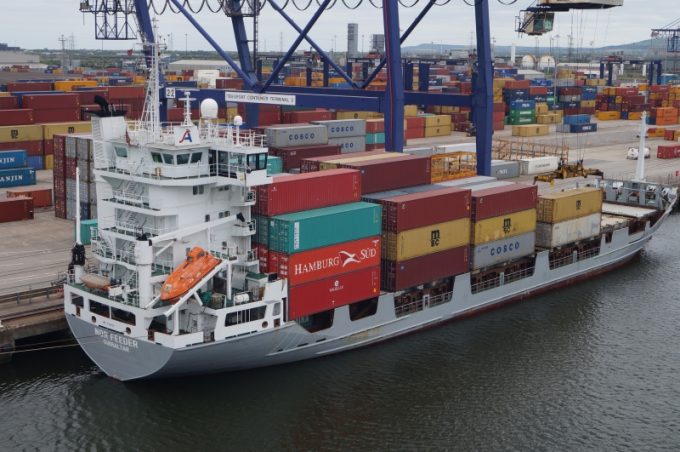Hapag-Lloyd reveals rotation changes to Asia-Europe CGX service
As carriers prepare for a new liner alliance landscape next year, moves are under way ...

UK retailers have been mitigating the dearth of export capacity on offer from Asia for the main container hubs of Felixstowe, Southampton and London Gateway by chartering space from ad-hoc providers for discharge at smaller ports.
Moreover, with thousands of containers packed with Christmas goods stranded at ports on the continent, the left-field strategy of taking a chance on entrepreneurial carriers and NVOCCs has paid off for some major retailers, ensuring empty shelves are kept to a minimum in the vital ...
Keep our news independent, by supporting The Loadstar
Container spot rates diverge: to Europe still falling, but firmer to the US
Volume surge and an early peak season? 'Don't celebrate too soon,' warning
Hapag-Lloyd won't take bookings if port congestion leaves cargo stranded
Ecommerce likely the front-runner in resurge of transpacific trade after deal
China-US trade tariff pause could drive a rebound for transpacific rates
Service chaos from trade ban with India a problem for Pakistan shippers
Airfreight rates ex-China 'loss-making', but hopes of a trade deal stay high

Comment on this article